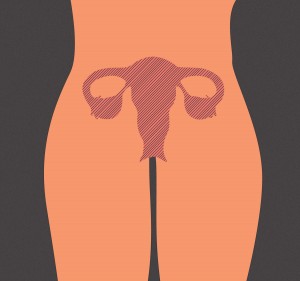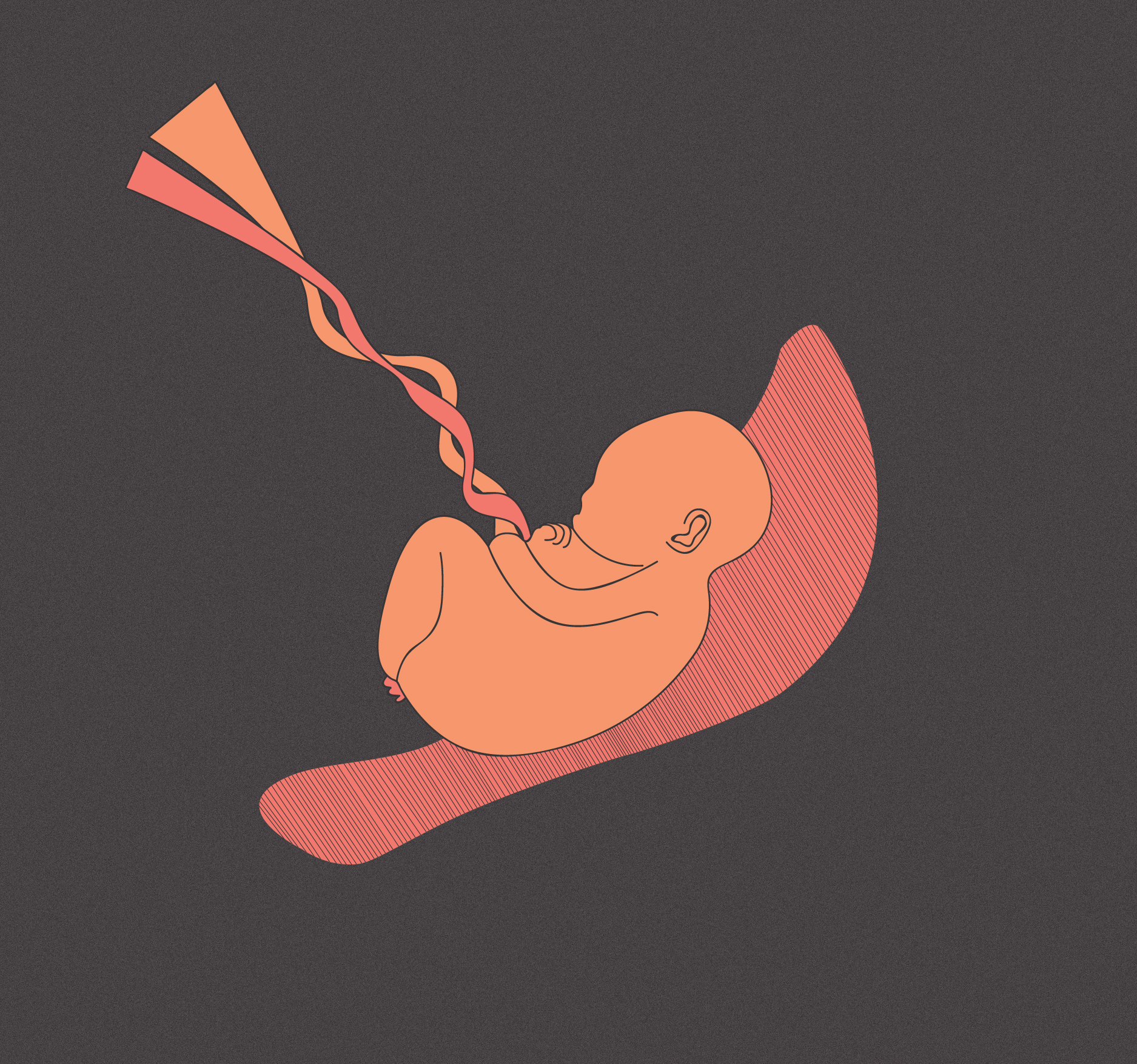Despite abortion being legal up to the tenth week of pregnancy, girls and women do not have access to sexual education, barely use modern methods of contraception, and are mistreated in gynecology departments. Progress towards sexual and reproductive health will only be noticed once we will be able to talk openly and freely about women’s options and our power to control our own bodies.
I have always wanted children and my maternal instincts kick in every once in a while. Yet, I find decision to have a child in Kosovo a difficult one. It isn’t because of my feminist struggle to reject the traditional cultural norms in regarding motherhood as one’s ultimate goal. As a passionate reader and feminist activist that struggle no longer poses a threat on a personal level. However, it is the dire state of women’s sexual and reproductive rights in Kosovo that gives me pause.
These doubts arise from encountering milder problems like the conservative attitudes of fellow citizens and medical professionals; from the discomfort many of us feel when asking for the morning-after pill at the pharmacy, the fear of getting pregnant and the pressure to deal with it without the support of loved ones. The misgivings persist in the face of more difficult issues like the sexism that women face at visits to the the gynecologist’s office, who ask you “are you married?” instead of “are you sexually active?” They refer to “your husband” instead of “your partner,” or urge you to have children if you have reached a certain age.
Institutional violence towards women
Women who, after a Caeserean section, were forced by the nurse to keep the rooms clean and tidy before doctor’s appointment and confessed to bribes they pay doctors for essential care and attention; and lest we forget the case of the mother who was infected in the surgery hall after a C-section.
Discrimination and maltreatment of women in terms of reproduction takes harsher forms. There are numerous cases well known to the Kosovar public regarding what happens at the University Clinical Center of Kosovo (know here as QKUK). A 27 year old woman died several hours after she gave birth in the Gynecology Hospital in Gjilan. According to the prosecution, it is suspected that the woman died due to bleeding that could not be found – essentially the negligence of the medical staff. Last year, a baby passed away due to lack of care by the medical personnel at the Gynecology Hospital in Mitrovica.
A woman started the delivery process in a hospital hallway due to lack of care and attention from the health personnel. And that is not all; the nurse who approached her finally, asked her “Why are you walking so clumsily?” Other scandals involved a woman who had a napkin sewn inside her body after surgery; women who, after a Caeserean section, were forced by the nurse to keep the rooms clean and tidy before doctor’s appointment and confessed to bribes they pay doctors for essential care and attention; and lest we forget the case of the mother who was infected in the surgery hall after a C-section.
All such cases classify the gynecology departments at local and regional hospitals in Kosovo as terrifying places for pregnant women to step into, where even the death of mothers and babies happen suspiciously and it is common for the medical staff involved never to be penalized for negligence, and not to have their licenses revoked.
Laws and flaws
Just how powerless women in Kosovo are in terms of reproduction proves the legal framework that regulates reproduction. Kosovo law defines abortion as “termination of pregnancy by violence.” “Medically induced” and not by natural causes might have been the intended notion. However, defining abortion as a violent act provides a very narrow perspective on the causes and needs women have when they consider having it. The law in question does not include economic and social reasons as legitimate reasons for requesting a medically induced abortion. Women’s consent is nowhere stated as a priority or a significant matter, and that is why abortion in Kosovo is not seen from a human rights perspective.
According to the UN regulations that recently recognized abortion as a human right, the ground on which abortion is made legal and legitimate is based upon saving the life of the woman, preserving her physical and mental health, in cases of rape and incest, fetal impairment, economic or social reasons, and in most countries it is simply available by request in the first trimester of pregnancy.
Issues that girls and women in Kosovo have to face on their own: intimate-partner rape and violence; domestic violence for having sex outside of marriage or the person one shall marry; engaging in painful forms of sex for the sake of ‘keeping’ their virginity; suicidal thoughts and hymenoplasty, which is considered quite common in Kosovo.
I spoke to a psychiatrist who preferred to remain anonymous for her patients’ sake and the trust they share. She presented a range of issues that girls and women in Kosovo have to face on their own: intimate-partner rape and violence; domestic violence for having sex outside of marriage or the person one shall marry; engaging in painful forms of sex for the sake of ‘keeping’ their virginity; suicidal thoughts and hymenoplasty, which is considered quite common in Kosovo. The psychiatrist claimed that the sexist mindset dominates the medical environments, and assured that even during delivery, women face slut-shaming and verbal abuse by nurses and doctors. 
There is profound lack of data regarding the number of abortions conducted in public and private health institutions. The legal requests from every health institution to report statistical data related to pregnancy termination. Yet, public and private health institutions do not have or do not want to provide the statistics on the number of abortions conducted within a certain period of time, be that on a monthly or annual basis. The Law on Health, and the Law on Termination of Pregnancy are notoriously unimplemented, since abortions are conducted both in public and private health centers. Compared to other Balkan countries, access to such vital data in Kosovo regarding the health and decisions of women is denied. E-mails are ignored, phone calls are not answered, and professionals contacted for interviews are almost impossible to get in touch with.
Single motherhood and patriarchy
Reproductive health in Kosovo is neither among public health priorities nor a matter of women’s empowerment. Sex, relationships, contraceptives, parenting roles and abortion are legally constructed and socially debated under a patriarchal point of view where women are powerless over their own bodies, with their role acknowledged only as primary caregivers, and with the nuclear family as the sole accepted concept.
 In Kosovo law single mothers are referred to as “unmarried women.” Women over 45 years old have to be evaluated by the Medically Assisted Conception Committee, a process which due to the unethical attitude of the health system in general is proved to lack confidentiality for the privacy of patients. I interviewed a person on this issue – a woman in her forties, professionally settled and financially stable, single and ready to be a single mother. Despite being admired as an independent, successful and confident woman, she is discouraged professionally and socially in terms of single motherhood, since not having a husband that would be the baby’s daddy is too much to handle for a society that deems unmarried women inferior and illegible for the status of an official parent.
In Kosovo law single mothers are referred to as “unmarried women.” Women over 45 years old have to be evaluated by the Medically Assisted Conception Committee, a process which due to the unethical attitude of the health system in general is proved to lack confidentiality for the privacy of patients. I interviewed a person on this issue – a woman in her forties, professionally settled and financially stable, single and ready to be a single mother. Despite being admired as an independent, successful and confident woman, she is discouraged professionally and socially in terms of single motherhood, since not having a husband that would be the baby’s daddy is too much to handle for a society that deems unmarried women inferior and illegible for the status of an official parent.
When I interviewed her, she preferred to remain anonymous but was keen on informing me about the legal aspects that provides single women with the right to become mothers and discourages them to do so at the same time. The medical environment has an exploitative approach towards their patients, with no respect for the privacy of their patients. Such an approach by health care professionals can be seen simply as a form of communication, which does not differ from the common way women and men communicate in other environments.
Contraceptives and abortion pills
Women and girls in Kosovo lack access to safe contraceptives. The regular contraceptives registered in Kosovo include four different types, three from Bayer, Germany, and one from Pharmapack Technology, Australia. They cost about 12.95 Euros + 30% of the cost added by the pharmacies. But the very few pharmacists interviewed (who preferred to remain anonymous), claimed that other regular contraceptives are sold in pharmacies, one that cost one or two euros. Meanwhile, there are two types of emergency pills, taken only after unprotected coitus, that are sold in Kosovar pharmacies. G-Pill and smart pill, both produced in India, are sold in most pharmacies without a customs certification. They cost two to three euros, although in reality they should cost much more. About three or four months ago, pharmacists report, a new emergency pill came into the market and it costs about 16 – 17 euros.
In Kosovo, abortion pills can be bought in pharmacies through a doctor’s prescriptions. Although it is claimed that abortion pills can be purchased only by prescription, such ethical rules are most likely not respected. Just like other medicines from the Essential List of Medicines, which are freely sold in certain pharmacies without prescription, the same can be expected for abortion pills. Having access to such strong pills for pregnancy termination without medical guidance and professional supervision can put the health of women and girls in serious danger, and it is a topic that should be discussed as an important public health issue.
Lack of quality contraceptives might be one of the reasons why contraceptives are used by a quite small percentage of women and girls. A UNICEF survey shows that only 13.7 % of women aged 15-49 who are married or in a union use modern contraceptive methods, which include IUDs and ‘the pill.’ Such lack of awareness about protecting the reproductive health of women and girls is reinforced by the lack of family planning policies, sex education, and national campaigns on sexual and reproductive health. Kosovo, thus, has nothing to offer to women going through physical and emotional transformations. Using quality contraceptives means empowerment for women and girls, and access to safe and affordable ones is a must: a must for women’s health, a must for women’s wellbeing, a must as a family planning policy.
For reproductive autonomy and empowerment
The abuse and maltreatment that women face in the environments of the University Clinical Center of Kosovo is alarming. Thus it requires full institutional reform and judicial action to demand strict ethical standards from health institutions in support of the lives of women, mothers and babies. Behavior and attitude change among health care professionals must be considered just as critical as legal regulations regarding women’s sexual and reproductive health.
 There are plenty of contradictions and mixed signals sent to women with regards to their reproductive capabilities and rights. Despite abortion being legal up to the tenth week of pregnancy, with contraceptives and abortion pills available, girls and women do not have access to sexual education, and surveys show that modern methods of contraception are used very little. Moreover, artificial insemination for single mothers is difficult, and legal procedures are in place to obstruct single motherhood.
There are plenty of contradictions and mixed signals sent to women with regards to their reproductive capabilities and rights. Despite abortion being legal up to the tenth week of pregnancy, with contraceptives and abortion pills available, girls and women do not have access to sexual education, and surveys show that modern methods of contraception are used very little. Moreover, artificial insemination for single mothers is difficult, and legal procedures are in place to obstruct single motherhood.
If the inconsistencies in the health legal framework are not resolved, we will not be able to have the adequate and proper space for a better debate on sexual and reproductive rights and options, for women as citizens with full rights and responsibilities as parents, independent and able to exercise complete and informed autonomy over their own bodies. Therefore, women’s consent should be explicitly stated in the legal framework, as well as the social and financial difficulties they face in a country like Kosovo where, as surveys show, more than 50% of families cannot afford a sudden expenditure of even 500 Euros through their own resources.
Kosovo’s health care system requires fundamental changes and reforms to heal from corruption and the disregard for the lives and wellbeing of patients. Progress towards sexual and reproductive health will be noticed when we will be able to talk openly and freely about women’s health, about our options and our power to control our own bodies. Empowered women instead of threatened, encouraged instead of terrified – when it comes to giving birth and relying on institutions, will help in Kosovo’s journeys towards smashing misogyny at institutional and social level, as well as changing minds and perspectives regarding body integrity and women’s health.







